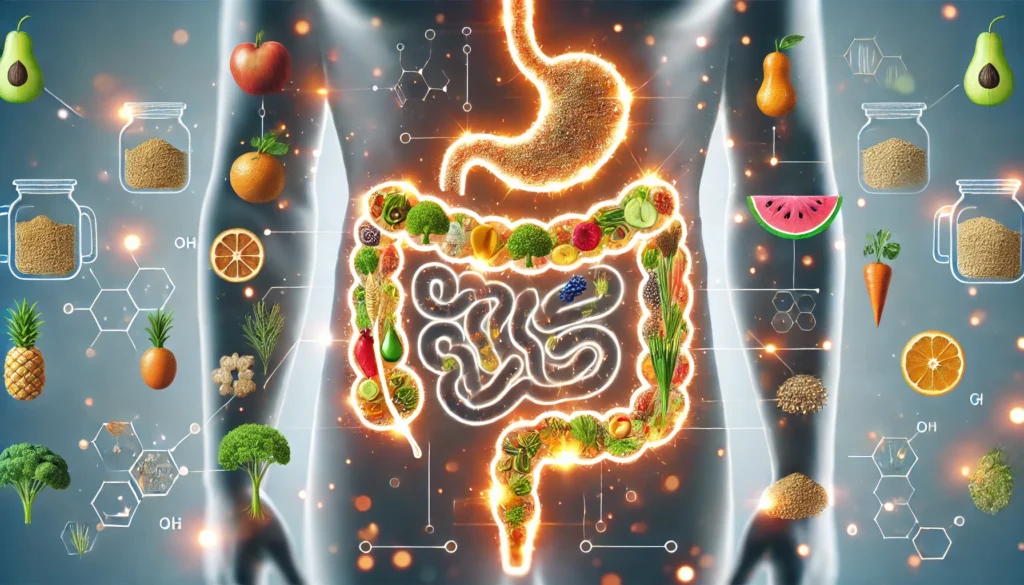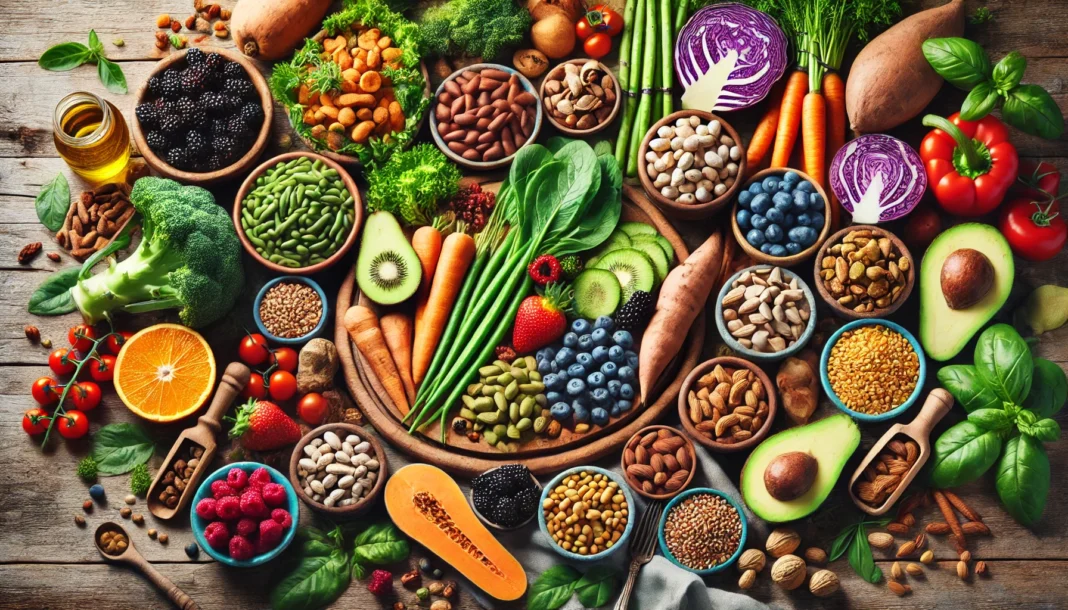Adopting a two week plant-based diet can be an eye-opening, revitalizing experience for many individuals who are curious about the effects of shifting away from animal products. With increasing interest in the benefits of plant-based nutrition, particularly for long-term health, environmental sustainability, and disease prevention, many people are trying short-term challenges to assess whether a plant-based lifestyle is right for them. A two week plant-based diet serves as a manageable entry point—long enough to notice initial physiological and psychological changes, but not so long that it feels overwhelming. This article delves into the science-backed outcomes, common challenges, and realistic expectations that arise when transitioning to a plant-based diet for 14 days. Whether you’re motivated by health, ethical concerns, or curiosity, understanding what to expect on a two-week journey can help you succeed and potentially inspire a longer-term transformation.
You may also like: Is a Plant-Based Diet Healthy? What the Science Says About the Benefits of Eating More Whole Plant Foods
The Science Behind Plant-Based Nutrition
The foundation of a plant-based diet lies in consuming whole, minimally processed foods that come from plants, including vegetables, fruits, legumes, whole grains, nuts, and seeds. Unlike veganism, which is often defined by what it excludes (all animal products), a whole-food plant-based approach emphasizes the quality and source of foods rather than focusing solely on the absence of animal ingredients. Scientific evidence has repeatedly shown that plant-based diets are associated with lower risks of chronic illnesses such as cardiovascular disease, type 2 diabetes, hypertension, and certain cancers. Meta-analyses and cohort studies consistently demonstrate that individuals who eat more plant-based foods have lower levels of LDL cholesterol, better blood glucose control, and lower rates of obesity.
Short-term interventions, including two-week trials, have shown surprisingly rapid results in some individuals. In as little as 14 days, participants often experience measurable improvements in markers like blood pressure, insulin sensitivity, and digestion. These changes are not merely anecdotal. Controlled studies examining short-term dietary shifts have revealed significant metabolic improvements when subjects consume a whole-food, plant-based diet. The elimination of animal fats, reduction of processed sugars, and increased intake of fiber-rich foods lead to a cascade of benefits, beginning with the gut microbiome and extending to systemic inflammation and cardiovascular health.

Physical Changes to Expect During a Two Week Plant-Based Diet
One of the most noticeable changes during a two week plant-based diet is a shift in digestion. Increased fiber intake—sometimes more than double the amount consumed on a standard Western diet—can initially lead to bloating or gas as the body adjusts. However, this temporary discomfort often gives way to improved regularity and a feeling of lightness. Many individuals report less sluggishness after meals, fewer sugar crashes, and increased energy levels. The body’s transition to metabolizing plant-based carbohydrates and fiber instead of animal fats can stimulate more stable blood sugar responses throughout the day.
Weight changes can also occur within this short timeframe. While not everyone will experience weight loss, it is common for individuals to shed excess water weight and reduce inflammation during the first two weeks. For those previously consuming high amounts of sodium and saturated fats, removing these elements can lead to a reduction in bloating and an overall feeling of being less puffy. Some people may also notice clearer skin, which may be linked to decreased dairy consumption, improved hydration from high-water-content fruits and vegetables, and enhanced detoxification pathways supported by nutrient-dense plant foods.
Mental and Emotional Effects of Going Plant-Based
Beyond physical health, a two week plant-based diet can impact mental and emotional well-being. Anecdotal reports and emerging research suggest that individuals often experience a mood boost, improved mental clarity, and reduced feelings of anxiety or irritability. While some of these changes may be due to placebo effects or increased mindfulness about eating, others are grounded in nutritional science. A diet rich in complex carbohydrates, magnesium, B vitamins, and omega-3 fatty acids from plant sources such as flaxseeds and walnuts can support neurotransmitter balance and reduce inflammation in the brain.
Sleep patterns may also change during this dietary shift. Many people report more restful sleep and an easier time falling asleep, likely due to a decrease in stimulants, refined sugars, and heavy animal-based meals. In addition, the antioxidants and phytochemicals found in plant foods can influence circadian rhythms and support adrenal health. For some, this mental clarity and emotional steadiness become one of the most compelling reasons to continue beyond the initial two-week experiment.
Common Challenges Faced During the Transition
While the benefits of a plant-based diet can emerge quickly, it’s important to recognize the initial hurdles. One common challenge is adjusting to a higher fiber intake, which can lead to temporary bloating or discomfort. Staying hydrated, incorporating cooked vegetables instead of only raw ones, and gradually increasing fiber can help ease this transition. Cravings for familiar foods—especially those high in fat, salt, and sugar—can also surface, particularly in the first few days. These cravings are often tied to emotional eating patterns and reward pathways in the brain that have been conditioned over time.
Meal planning can be another stumbling block. Many people are unsure how to build satisfying meals without animal protein or dairy. However, with some basic guidance and exposure to plant-based recipes, this challenge often turns into an opportunity for culinary exploration. Accessibility and social situations can also pose difficulties, especially when dining out or explaining dietary choices to friends and family. Having a few go-to restaurant options and practicing how to communicate your dietary preferences can help navigate these scenarios more smoothly.
Nutritional Adequacy and Key Nutrients to Monitor
Ensuring nutritional adequacy is essential for anyone trying a plant-based diet, even for a short two-week period. While whole plant foods are rich in vitamins, minerals, and phytonutrients, there are certain nutrients that deserve special attention. Vitamin B12, for instance, is not reliably found in plant foods and should be supplemented or consumed through fortified products. Iron, zinc, calcium, and omega-3 fatty acids can all be obtained from plants, but it requires intentional food choices. Leafy greens, legumes, nuts, seeds, and whole grains provide many of these nutrients, but understanding bioavailability and food synergy can help optimize absorption.
Protein is another concern frequently raised by those new to a plant-based diet. Contrary to popular belief, it’s entirely possible to meet protein needs through plants, even in a short period like two weeks. Foods like lentils, tofu, tempeh, chickpeas, quinoa, and edamame are excellent sources of complete or complementary proteins. Additionally, whole-food plant-based diets tend to provide sufficient amino acids when a variety of foods are consumed throughout the day. For those engaging in regular physical activity, increasing portion sizes or including plant-based protein powders can support muscle maintenance and recovery.
Sample Two Week Plant-Based Diet Meal Plan for Inspiration
Designing a realistic and satisfying meal plan is key to success during a two week plant-based diet. For breakfast, options such as steel-cut oats with berries and flaxseeds, or tofu scramble with vegetables and whole grain toast, can provide lasting energy. Lunch might include a hearty lentil soup, quinoa salad with chickpeas and roasted vegetables, or a burrito bowl made with brown rice, black beans, avocado, and salsa. Dinner could feature dishes like baked sweet potatoes with tahini-drizzled kale and lentils, stir-fried tofu with broccoli and brown rice, or creamy cashew pasta with sautéed spinach.
Snacks are equally important for maintaining energy levels and avoiding unhealthy cravings. Hummus with sliced vegetables, trail mix with nuts and dried fruit, or a smoothie made with plant-based milk, banana, and spinach can offer a satisfying nutrient boost. Planning and prepping meals in advance, experimenting with spices, and rotating different plant-based proteins can help keep meals exciting and nutritionally balanced. Keeping a journal or photo log of meals may also enhance awareness and motivation throughout the two weeks.
What 2 Week Plant-Based Diet Results Might Look Like
The 2 week plant based diet results will vary based on individual factors such as baseline diet, activity level, genetics, and existing health conditions. However, there are common trends that have been observed in clinical and self-reported settings. Many people experience modest weight loss, improved digestion, more consistent energy levels, and a greater sense of well-being. Reductions in LDL cholesterol and blood pressure are sometimes measurable within this timeframe, especially among those transitioning from a diet high in animal fats and processed foods.
In addition to physiological changes, participants frequently describe a shift in taste preferences. Foods that once seemed bland—like steamed vegetables or whole grains—may begin to taste more vibrant as taste buds recalibrate. This sensory change can help reinforce long-term behavior change, as cravings for processed foods may diminish. These two week plant based diet results, while subtle in some cases, often provide enough motivation to encourage continued exploration of a plant-based lifestyle beyond the initial trial period.
Long-Term Considerations After Completing the Two Weeks
Once the initial two-week period concludes, many people find themselves reflecting on how they feel and whether they want to extend the experience. For some, the benefits are compelling enough to continue fully plant-based eating. Others may choose a more flexible, predominantly plant-based approach that still allows occasional animal products. Regardless of the outcome, the insights gained during the 14-day experiment can inform future choices and raise awareness about the impact of food on health and well-being.
It’s important to re-evaluate goals and motivations after the two weeks. Was the purpose weight loss, better digestion, improved energy, or ethical concerns? Identifying these drivers can help maintain positive momentum and guide future dietary decisions. It’s also a good time to assess whether further support is needed—such as working with a registered dietitian, joining a plant-based community, or learning more about cooking techniques and food prep strategies. Sustainable change is built on realistic goals, self-awareness, and a willingness to adapt over time.

Frequently Asked Questions: What to Expect on a Two Week Plant-Based Diet
1. Can a two week plant-based diet improve athletic performance or recovery?
Yes, a two week plant-based diet can offer noticeable benefits for athletes and active individuals, especially in terms of recovery. The increased intake of antioxidants, phytonutrients, and anti-inflammatory compounds found in plant-based foods may reduce exercise-induced inflammation and muscle soreness. While enhanced performance may take more time to manifest, some individuals report improved stamina and quicker recovery even within two weeks. Plant-based diets also naturally enhance circulation due to lower saturated fat intake, which may contribute to better oxygen delivery during workouts. If the 2 week plant based diet results include better sleep and digestion, athletes may experience cumulative gains in endurance, focus, and resilience.
2. How does a two week plant-based diet affect the gut microbiome?
A shift to plant-based eating significantly alters the gut microbiome—often for the better—even within a short window like two weeks. A fiber-rich diet encourages the growth of beneficial bacteria such as Bifidobacteria and Lactobacillus, which are known to support immune health and digestion. Unlike typical Western diets that promote gut dysbiosis through excess fat and sugar, a two week plant-based diet fosters microbial diversity. This microbial shift not only enhances nutrient absorption but may also contribute to better mood regulation and inflammation control. The 2 week plant based diet results may even include reduced bloating or constipation as gut flora stabilize and thrive.
3. Are there cognitive or neurological benefits tied to a short-term plant-based diet?
While long-term changes offer more robust cognitive benefits, a two week plant-based diet can still promote subtle neurological improvements. Increased intake of plant-derived polyphenols, omega-3 precursors, and B vitamins supports neurotransmitter production and may reduce brain fog. Some individuals report sharper concentration, less mental fatigue, and a more stable mood. These changes are often linked to lower systemic inflammation and improved insulin sensitivity, both of which affect brain function. As part of the 2 week plant based diet results, even a modest mental uplift can motivate continued adherence.
4. How do social dynamics change during a two week plant-based diet challenge?
Shifting to a plant-based diet—even briefly—often brings unexpected social consequences. People may feel isolated or questioned by friends, colleagues, or family members, particularly in cultures or environments where meat is central to social gatherings. However, a two week plant-based diet can also serve as a powerful conversation starter and an opportunity to share new recipes or values. Participants often report that the challenge prompts deeper discussions about health, sustainability, and ethics. For some, the 2 week plant based diet results in a strengthened sense of community when connecting with others pursuing similar goals online or in person.
5. Can a two week plant-based diet influence hormonal balance?
Hormonal fluctuations are complex, but even short-term dietary changes can play a role. A two week plant-based diet may help reduce estrogen dominance in some individuals by increasing fiber intake, which assists in hormone excretion. Additionally, lowering intake of animal fats and processed foods can support improved insulin sensitivity and cortisol regulation. Some women report fewer PMS symptoms or more predictable cycles after just a couple of weeks. The 2 week plant based diet results aren’t uniform, but early indicators of hormonal balance—like mood stabilization or clearer skin—are commonly reported.
6. What strategies help manage cravings during the first few days?
Managing cravings is a pivotal aspect of successfully navigating a two week plant-based diet. It helps to understand that cravings are often psychological, driven by habit and dopamine feedback loops rather than true hunger. Keeping nourishing, flavorful alternatives on hand—like roasted chickpeas, fresh fruit, or savory tofu dishes—can make a major difference. Meal prepping, eating regularly to prevent blood sugar dips, and staying well-hydrated all help curb cravings. Many people find that the 2 week plant based diet results in reduced dependence on processed comfort foods after these initial days pass.
7. How can someone personalize their approach to maximize 2 week plant based diet results?
Customization plays a huge role in the success and sustainability of any dietary change. During a two week plant-based diet, tailoring your meals to your cultural background, taste preferences, and health goals enhances satisfaction and adherence. For instance, someone aiming to lower blood pressure might focus on potassium-rich vegetables and low-sodium dishes, while someone interested in muscle gain might boost intake of lentils, tempeh, and plant-based protein shakes. Tracking your energy, digestion, and mood in a journal can help identify what works best for you. Ultimately, the most meaningful 2 week plant based diet results stem from aligning the diet with your lifestyle rather than imposing a rigid plan.
8. What unexpected positive changes do people often notice during a two week plant-based diet?
Beyond the commonly expected benefits like weight loss or improved digestion, participants in a two week plant-based diet often report several pleasant surprises. These can include more vivid dreams, increased sensitivity to flavors, and a heightened appreciation for food variety. Some people even note more restful breathing or reduced congestion, which may be linked to cutting out dairy or processed foods. Another commonly cited bonus is greater mindfulness around eating—people tend to become more present during meals, which can reduce overeating. These subtle yet powerful shifts often become part of the 2 week plant based diet results that motivate individuals to continue.
9. Are there technological tools that can support success on a two week plant-based diet?
Absolutely—leveraging apps and tech tools can dramatically increase success rates and ease the learning curve. There are nutrition trackers that analyze micronutrient intake to ensure nutritional adequacy, recipe apps that filter by dietary preference, and even grocery list generators that make plant-based shopping simpler. Social media communities and meal-sharing platforms also provide emotional support and accountability. Smartwatches can be useful for tracking energy levels, sleep patterns, and even stress responses throughout the transition. For many, these tech integrations amplify the impact of a two week plant-based diet and enhance the quality of 2 week plant based diet results.
10. What are the psychological shifts that occur after completing a two week plant-based diet?
Finishing a two week plant-based diet can foster a deep sense of accomplishment and identity expansion. People often report feeling more empowered in their food choices, having broken free from patterns they previously assumed were immutable. There’s also a psychological boost from aligning one’s actions with values—whether those relate to health, sustainability, or animal welfare. The 2 week plant based diet results can extend beyond the plate, influencing how individuals view their capability to enact change in other areas of life. For many, it serves as a proof point that transformation is possible, even in a short window of time.

Embracing the Journey: Final Thoughts on Trying a Two Week Plant-Based Diet
Embarking on a two week plant-based diet offers far more than a simple nutritional experiment—it opens the door to deeper awareness about health, food, and personal well-being. The experience can be both transformative and grounding, offering tangible health benefits and a renewed connection to what fuels the body. From improved digestion and energy to emotional clarity and sustainable weight shifts, the 2 week plant based diet results can be surprising and empowering.
While challenges like meal planning, cravings, or social dynamics may arise, they are often outweighed by the sense of accomplishment and discovery that come from trying something new. Each individual’s journey is unique, and the lessons learned during the two weeks can inform a lifelong relationship with food. Whether the experiment leads to a fully plant-based lifestyle or simply a greater appreciation for whole plant foods, the decision to explore this path—even briefly—can have a lasting impact. With the growing body of scientific evidence supporting plant-based nutrition, the choice to try a two week plant-based diet is not only reasonable but also backed by research and real-world success.
Further Reading:
What is a plant-based diet and why should you try it?
Plant-Based Diet Benefits and Challenges: What to Know
plant-based meal plan, benefits of plant-based eating, whole food nutrition, plant-based diet transformation, clean eating challenge, vegan lifestyle tips, plant-forward diet, healthy plant-based recipes, short-term diet experiment, plant-based detox, transitioning to plant-based, anti-inflammatory foods, plant-based nutrition science, healthy gut diet, plant-based protein sources, boosting energy naturally, beginner plant-based guide, two week diet challenge, healthy lifestyle change, plant-based health benefits
The information contained in this article is provided for general informational purposes only and is not intended to serve as medical, legal, or professional advice. While NewsHealthWatch strives to present accurate, up-to-date, and reliable content, no warranty or guarantee, expressed or implied, is made regarding the completeness, accuracy, or adequacy of the information provided. Readers are strongly advised to seek the guidance of a qualified healthcare provider or other relevant professionals before acting on any information contained in this article. NewsHealthWatch, its authors, editors, and contributors expressly disclaim any liability for any damages, losses, or consequences arising directly or indirectly from the use, interpretation, or reliance on any information presented herein. The views and opinions expressed in this article are those of the author(s) and do not necessarily reflect the official policies or positions of NewsHealthWatch.

